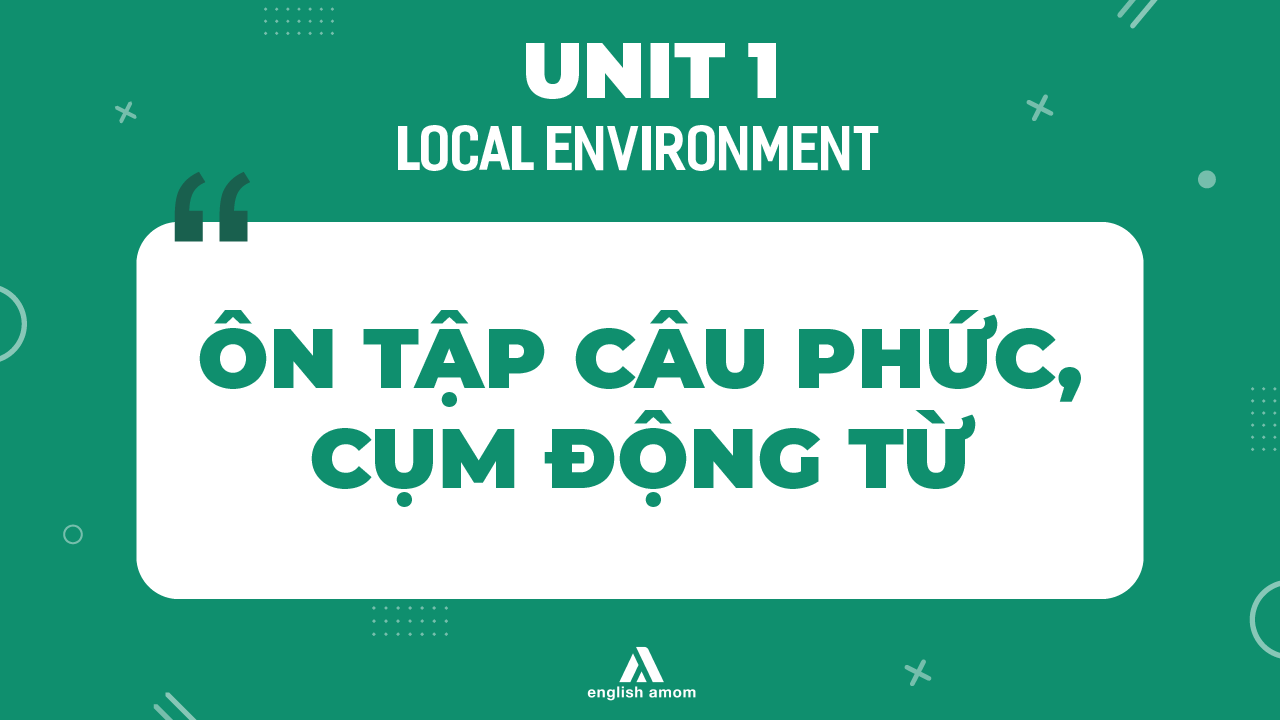
► Kênh hỏi đáp và giải thích thắc mắc kiến thức MIỄN PHÍ → truy cập LINK NHÓM: ENGLISH AMOM
► Kênh YOUTUBE hệ thống toàn bộ bài giảng CLIPS: truy cập LINK: ENGLISH AMOM CHANNEL
► Kênh TIKTOK: ENGLISH AMOM
I. LÝ THUYẾT
A) Các loại mệnh đề phụ thuộc
| Định nghĩa | Ví dụ |
| Mệnh đề phụ thuộc chỉ sự tương phản: chỉ sự tương phản của hành động so với mệnh đề chính. |
Although I studied hard, I didn’t get high grades. |
| Mệnh đề phụ thuộc chỉ lý do: chỉ lý do hoặc nguyên nhân của hành động được nêu trong mệnh đề chính |
She didn’t go to class because she got sick. |
| Mệnh đề phụ thuộc chỉ thời gian: chỉ thời gian diễn ra của hành động so với thời gian diễn ra mệnh đề chính |
Let’s have dinner together after we go to the movies. |
| Mệnh đề phụ thuộc chỉ mục đích: dùng để chỉ mục đích của hành động ở mệnh đề chính | She studied hard so that she might get the scholarship. |
B) Cụm động từ
1) Định nghĩa
► Phrasal verb (cụm động từ) là cụm từ có cấu trúc bao gồm 1 động từ và 1 tiểu từ (phó từ hoặc giới từ) đi kèm.
Ex: She doesn't give up easily.
Who's going to look after the children while you're away?
► Trong 2 ví dụ trên, khi các tiểu từ up, after kết hợp với động từ give, look thì nghĩa của cụm động từ đó biến đổi hoàn toàn so với nghĩa của động từ ban đầu. Do vậy, ý nghĩa của các cụm động từ không chịu ảnh hưởng bởi nghĩa của động từ ban đầu. Vì vậy, ta nên hiểu nghĩa của cụm động từ theo từng văn cảnh.
+ give: đưa, tặng ; give up: từ bỏ
+ look: nhìn ; look after : trông nom, chăm sóc
2) Một số cụm động từ thường gặp
get up ( get out of bed)
find out ( get information)
Chú ý: Một động từ có thể đi với hai giới từ
keep up with ( stay equal with)
look forward to ( be thinking with pleasure about something to come)
II. BÀI TẬP
2) Make a complex sentence from each pair of sentences. Use the subordinator provided and make any necessary changes ( Page 10 )
1. The villagers are trying to learn English. They can communicate with foreign customers. (in order that)
2. We ate lunch. Then we went to Non Nuoc marble village to buy some souvenirs. (after)
3. This hand-embroidered picture was expensive. We bought it. (even though)
4. This department store is an attraction in my city. The products are of good quality. (because)
5. This is called a Chuong conical hat. It was made in Chuong village. (since)
ĐÁP ÁN:
1. The villagers are trying to learn English in order that they can communicate with foreign customers.
2. After we had eaten lunch, we went to Non Nuoc marble village to buy some souvenirs.
3. Even though this hand-embroidered picture was expensive, we bought it.
4. This department store is an attraction in my city because the products are of good quality.
5. This is called a Chuong conical hat since it was made in Chuong village.
6) Complete the second sentence so that it has a similar meaning to the first sentence, using the word given ( Page 10)
1. Where did you get the information about Disneyland Resort? (find)
Where.............................................................................?
2. What time did you get out of bed this morning? (up)
When.............................................................................?
3. I'll read this leaflet to see what activities are organised at this attraction. (look)
I'll.............................................................................
4. They're going to publish a guidebook to different beauty spots in Viet Nam. (out)
They're.............................................................................
5. I'm thinking with pleasure about the weekend! (forward)
I'm.............................................................................!
ĐÁP ÁN:
1. Where did you find out about Disneyland Resort?
2. When did you get up this morning?
3. I'll look through this leaflet to see what activities are organised at this attraction.
4. They're going to bring out a guidebook to different beauty spots in Viet Nam.
5. I'm looking forward to the weekend!

